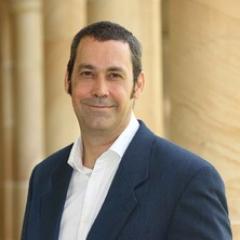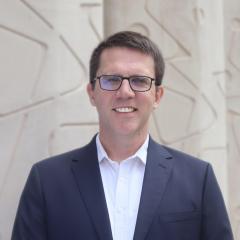The purpose of the ARC Training Centre for Transformation of Australia’s Biosolids Resource is to deliver world-class and innovative technological solutions and knowledge, to train the next generation of biosolids practitioners in cutting-edge, transformational approaches, and to guide best practice in the biosolids sector.
The agricultural application of biosolids is likely to remain a major beneficial use option. The major risk is the presence of odour, heavy metals, micro-plastics, emerging contaminants, drugs and pesticides that pose a risk to adoption. Also, biosolids are bulky in nature, have very high moisture content and are difficult to dewater.
Research is needed to reduce the (currently) high transportation costs, high diesel consumption, and related carbon dioxide emissions. Industries are actively looking for alternative technologies that can reduce biosolid volume as well minimise/eliminate undesirable characteristics.
The University of Queensland plays central roles in 3 of the Centre projects:
Project 1A: Novel biosolids processing routes for next generation, high quality products.
Developing new technologies for processing biosolids and generating novel products by blending with other waste streams, and characterising the transformations occurring in the generation of the blended products.
Project 1B: Enhancing resource recovery through thermal/hydrothermal processing.
Develop a comprehensive technology assessment tool that can assist water industries in selecting thermal/hydrothermal technology for regional and urban settings by identifying optimum process conditions for hydrothermal processing and investigating the fate of nutrient in the resulting solids and aqueous phases.
Project 2C: Future direction of biosolids, identifying new applications of transformed biosolids materials.
Identify and test applications of high value biosolids-based advanced carbon materials such as biochar, hydrochar and activated char produced by various advanced thermochemical methods (e.g. pyrolysis, gasification and hydrothermal liquefaction).
Collaborators
- RMIT (administering organisation), UWA, UNSW
- More than 20 partners including utility providers, end users and regulators.
Publications
Paper:
The role of microbial ecology in improving the performance of anaerobic digestion of sewage sludge
https://www.frontiersin.org/articles/10.3389/fmicb.2022.1079136/full
Conferences:
Second Annual Symposium
https://www.transformingbiosolids.org.au/second-annual-symposium/
Project members
Other members
- Prof Suzanne Schmidt (CI), The Univeristy of Queensland
- Dist Prof Andy Ball (CI), RMIT
- Prof Kalpit Shah (CI), RMIT
- Prof Nicky Eshtiaghi (CI), RMIT
- Dr Savankumar Patel (Post Doc), RMIT
- Dr Ganesh Veluswarmy (Post Doc), RMIT
- A/Prof Thomas Wiedmann (CI), UNSW


